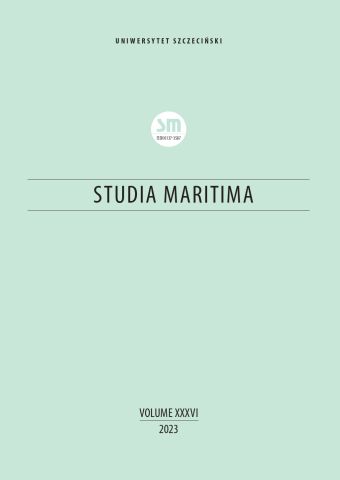






| Authors: |
Włodzimierz
Batóg

American Studies Center University of Warsaw |
| Keywords: | Billy Graham visit to Poland ecumenism Polish Baptists Poland religion evangelicalism Graham’s missions |
| Data publikacji całości: | 2023 |
| Page range: | 23 (111-133) |
| 1. | Abrecht, Paul. “The Social Thinking of the World Council of Churches.” The Ecumenical Review 17 (1965), 3: 241–250. |
| 2. | Aikman, David. Billy Graham. His Life and Influence. Nashville: Thomas Nelson, 2007. Anderson, Gerald H. “Uppsala 1968. The World Council’s Fourth Assembly.” Philippine |
| 3. | Studies 16 (1968), 2: 391–398. |
| 4. | Balbier, Uta A. “The World Congress on Evangelism 1966 in Berlin: US Evangelicalism, Cultural Dominance, and Global Challenges.” Journal of American Studies 51 (2017), 4: 1171–1196. |
| 5. | Balmer, Randall. Encyclopedia of Evangelicalism. Waco, Texas: Baylor University Press, 2004. |
| 6. | Bebbington, David E. Evangelicalism in Modern Britain. A History from the 1730s to the 1980s. London and New York: Unwin Hyman, 1989. |
| 7. | Brown, Harold O.J. “Climax in Confusion.” Christianity Today 12 (7 June 1968), 18: 37–39. |
| 8. | Burns, Roger. Billy Graham. A Biography. Greenwood, CT: Greenwood Press, 2004. |
| 9. | Dahle, Margunn S., Lars Dahle, and Knud Jorgensen, eds. The Lausanne Movement. A Range of Perspectives. Oxford: Regnum Books, 2014. |
| 10. | Eastman, Philip. “The Amsterdam Assembly of the World Council of Churches and International Legal Order.” The International Law Quarterly 2 (1948–1949) 4: 674–677. |
| 11. | Enns, James C. Saving Germany. North American Protestants and Christian Mission to West Germany 1945–1974. Montreal–London–Chicago: McGill–Queens University Press, 2017. |
| 12. | Finstuen, Andrew, Grant Wacker, and Anne Blue Wills, eds. Billy Graham. American Pilgrim. New York-Oxford: Oxford University Press, 2017. |
| 13. | FitzGerald, Thomas. The Ecumenical Movement. An Introductory History. Westport, CT: Greenwood Press, 2004. |
| 14. | Frady, Marshall. Billy Graham. A Parable of American Righteousness. New York–London– Toronto–Sydney: Simon and Schuster, 1979. |
| 15. | “Główna odpowiedzialność wszystkich chrześcijan [Main Responsibility of All Christians]. An interview with Billy Graham.” Znaki Czasu 56 (1978), 9 (309): 3–4. |
| 16. | Graham, Billy. Just As I Am: The Autobiography of Billy Graham. Grand Rapids, Michigan: Harper One – Zondervan, 2007. |
| 17. | Graham, Billy. Why Lausanne. Accessed: 4 October 2023. https://www.lausanne.org/ content/why-lausanne-print. |
| 18. | Hoke, Donald E. “Lausanne May Be a Bomb.” Christianity Today 18 (1974), 12: 12–16. Hunt, Robert A. “The History of the Lausanne Movement.” International Bulletin of |
| 19. | Missionary Research 35 (2011), 2: 81–84. |
| 20. | “Is Ecumenism Running Out of Fuel?”. Christianity Today 12 (1968), 11: 26–27. |
| 21. | Jarman, Maxey W. “Do We Really Need Lausanne?”. Christianity Today 18 (1974), 12: 36–39. |
| 22. | Johnson, Thomas P. Examining Billy Graham’s Theology of Evangelism. Eugene OR: Wipf and Stock Publishers, 2003. |
| 23. | Kim, Kirsteen. “Globalization of Protestant Movements Since 1960s.” The Ecumenical Review 63 (2011), 2: 136–147. |
| 24. | Krabbendamm, Hans. “Opening a Market for Missions. American Evangelicals and the Re-Christianization of Europe, 1945–1985.” Amerikastudien/American Studies 59 (2014), 2: 153–175. |
| 25. | Kraemer, Hendrik. “The Formation of the World Council and Its Significance for the Relations of the Churches to One Another.” The Ecumenical Review 1 (1949) 3, 260–266. |
| 26. | Kucharsky, David E. “Will The WCC Endorse Violence?”. Christianity Today 12 (1968), 18: 27–38. |
| 27. | Kunter, Katarina. “Revolutionary Hopes and Global Transformations. The World Council of Churches in the 1960s.” Kirchliche Zeitgeschichte 30 (2017), 2: 242–247. |
| 28. | Laine, Antti, Juha Merilainen, and Matti Peiponen. “Ecumenical Reconstruction, Advocacy and Action. The World Council of Churches in Times of Change, from the 1940s to the Early 1970s.” Kirchliche Zeitgesichte 30 (2017), 2: 327–341. |
| 29. | Larsen, Edward L., and Daniel J. Treier, eds. The Cambridge Companion to Evangelical Theology. Cambridge: Cambridge University Press, 2007. |
| 30. | Linde, Harold van der. “The Nature and Significance of the World Council of Churches.” The Ecumenical Review 3 (1951), 3: 238–247. |
| 31. | Lindsell, Harold. “Uppsala 1968: A Report on the Fourth Assembly of the World Council of Churches.” Christianity Today 12 (1968), 22: 3–5. |
| 32. | Little, Paul E. “Looking Ahead to Lausanne.” Christianity Today 18 (1973), 4: 4–6. |
| 33. | Lodberg, Peter. “World Council of Churches.” Kirchliche Zeitgeschichte 12 (1999), 2: 527–536. |
| 34. | Lofton, Katryn E. “The Preacher Paradigm: Promotional Biographies and the Modern- Made Evangelist.” Religion and American Culture 16 (2006), 1: 95–123. |
| 35. | Long, Michael G. Billy Graham and the Beloved Community. America’s Evangelist and the Dream of Martin Luther King. New York: Palgrave McMillan, 2006. |
| 36. | Long, Michael G., ed. The Legacy of Billy Graham. Critical Reflections on America’s Greatest Evangelist. Louisville –London: Westminster John Knox Press, 2008. |
| 37. | Martin, William. A Prophet with Honor. The Billy Graham Story. New York: William Morrow, 1992. |
| 38. | McLaughlin, William G. “Is There a Third Force in Christendom?”. Daedalus 96 (1967), 1: 43–68. |
| 39. | Morgan, Michael C. The Final Act. The Helsinki Accords and the Transformation of the Cold War. Princeton: Princeton University Press, 2018. |
| 40. | Oates, Wayne E. “The Billy Graham Evangelistic Crusade: An Evaluation.” Pastoral Psychology 7 (1956), 9: 17–26. |
| 41. | Ott, Bernhardt. Beyond Fragmentation. Integrating Mission and Theological Education. A Critical Assessment of Some Recent Developments in Evangelical Theological Education. Oxford: Regnum Books International, 2001. |
| 42. | Plowman, Edward. “Billy Graham in Poland. Crossing Church Frontiers.” Christianity Today 23 (1978), 3: 54–57. |
| 43. | Queen II, Edward L. Stephen R. Prothero, and Gardiner H. Shattuck, Jr., eds. Encyclopedia of American Religious History. New York: Facts on File, 2009. |
| 44. | Rhee, Jong Sung. Significance of the Lausanne Covenant. Accessed 4 October 2023. https://www.researchgate.net/publication/274658940_Significance_of_the_ Lausanne_Covenant. |
| 45. | Shibley, Mark A. “Contemporary Evangelicals: Born-Again and World Affirming.” The Annals of the American Academy of Political and Social Science 558 (1998), 1: 67–87. |
| 46. | Stankiewicz, Michał, ed. Billy Graham w Polsce. Warszawa: Wydawnictwo “Słowo Prawdy,” 1979. |
| 47. | The Lausanne Covenant. Accessed: 16 October 2023. https://www.lausanne.org/content/ covenant/lausanne-covenant#cov. |
| 48. | Thomas, William. An Assessment of Mass Meetings as a Method of Evangelism: Case Study of Eurofest’75 and the Billy Graham Crusade in Brussels. Amsterdam: Rodopi, N.V., 1977. |
| 49. | Van Dusen, Henry P. “What Does the Formation of the World Council of Churches Mean for the Relations of the Churches to Reach Each Other?”. The Ecumenical Review 1 (1949), 3: 251–259. |
| 50. | Wacker, Grant. America’s Pastor. Billy Graham and the Shaping of a Nation. Cambridge, Mass., London: Harvard University Press, 2014. |
| 51. | “Wheaton Declaration.” The International Review of Mission 55 (1966), 220: 458–478. “Why «Christianity Today»?”. Christianity Today 1 (1956), 1. Accessed: 4 October 2023. |
| 52. | https://www.christianitytoday.org/who-we-are/our-history/whychristianitytoday.html. Williamson, De Visme Rene. “Negative Thoughts about Ecumenism.” Christianity |
| 53. | Today 23 (1968), 23: 2–14. |